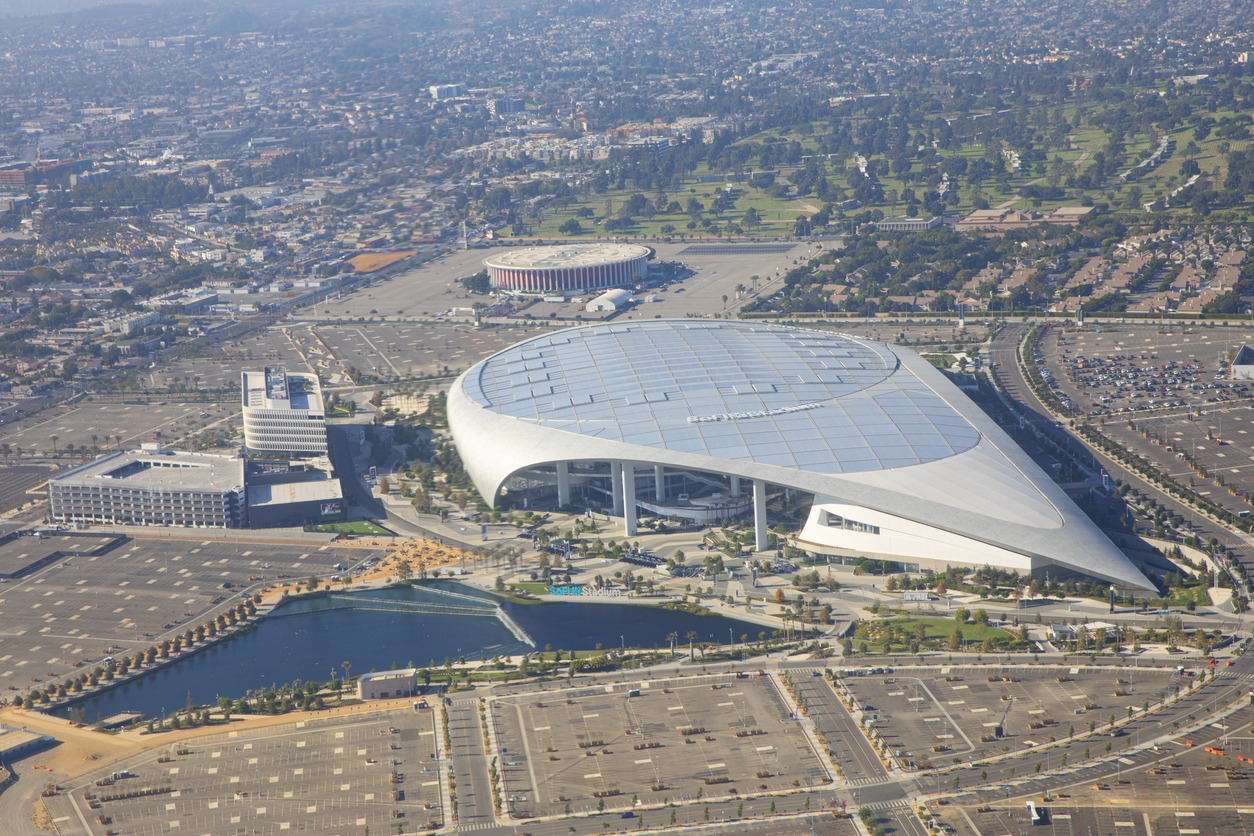Trends shaping audience engagement efforts ahead of the ‘Big Game’
The NFL’s annual championship broadcast still offers a unique opportunity to reach consumers. Yet, some brands are trying to offer more ways to engage.

For brand managers looking to engage around the Super Bowl this year—whether they have coughed up the cash to use the name or are resorting to vague teases about the “big game”—the opportunities are vast.
Super Bowl LVI will air on Feb. 13, broadcasting from LoFi Stadium in Inglewood, California. The game will be televised on NBC.
While many will flock to watch the brand placements in between snaps, some of the ways brands are looking to engage will have less to do with a traditional ad spot. State Farm, a perennial marketing presence with sports figures like Patrick Mahomes and Aaron Rodgers, is opting not to air a Super Bowl ad this year.
Instead of splurging on guest appearances by Drake and Paul Rudd as it did a year ago, the insurance provider is forgoing a traditional Super Bowl ad in favor of the #TeamStateFarm TikTok challenge. Launching today, the campaign uses the Jake From State Farm character as a talent scout evaluating video submissions on the platform.
Users are asked to show off their talents (no football skills required) with TikTok’s duet feature and use the #TeamStateFarm hashtag. On Feb. 13, Super Bowl Sunday, the three best videos will be pinned to the top of Jake’s TikTok page. Users will then pick the winning video by liking their favorite.
Even if a brand does have a plan for a star-studded ad for game day, there are ways to drive social media interactivity. Planters is back at the Super Bowl for 2022 with a spot featuring actors Joel McHale and Ken Jeong—but their ad has a unique social media tie-in.
The brand’s latest campaign around the big game features comedians Ken Jeong and Joel McHale debating the right way to eat mixed nuts. Fans are encouraged to share on social how they prefer to consume mixed nuts—whether all at once like McHale or one at a time like Jeong—using the hashtag #PlantersAllorOne.
“While the answer to whether or not Super Bowl ad investment makes sense will vary from brand to brand—and it’s certainly a heavy investment, at $6.5 million this year—more and more brands are figuring out how to maximize ROI from it, making it a potentially farther-reaching investment than in previous years,” says Margo Kahnrose, CMO of Skai, an intelligent advertising technology platform.
Getting Meta
Some brands are creating their own bespoke virtual experiences to accompany the game. Miller Lite, for example, has partnered with virtual reality platform Decentraland to offer a virtual bar where fans can gather to watch the game together.
“The metaverse bar will be the only place where people can view Miller Lite’s ad that will run adjacent to the sporting event,” reports Marketing Dive. “There will also be hall of fame rewards for select patrons.”
Yet, such futuristic branded efforts haven’t convinced everyone. Miller Lite’s planned activity was skewered by Stephen Colbert on his late-night program:
Others are using their Super Bowl ad to signal confidence in a new product, a brand refresh or an industry bounceback from the darkest days of the pandemic.
“In some categories, especially those rebounding post-pandemic, a Super Bowl ad is an important indicator of that rebound,” explains Kahnrose. “More automakers are advertising this year than last, for example.”
Quick release throws
It’s not just quarterbacks who are trying to get the ball out in record time. Super Bowl advertisers are increasingly sharing their ads ahead the big game, extending the footprint of these expensive, often fleeting brand assets.
It’s an acknowledgement that many who might consume the ad aren’t watching the big game—and that a great Super Bowl ad can have a life of its own online.
And the ads have only gotten more complicated and expensive to make during the pandemic. A recent story in The Wall Street Journal details just how the pandemic has made the creation of these brand assets so finicky. With so much invested, pricing ROI has never been more important.
“Tracking the ROI on broadcast advertising has always been a challenge—you can tell how many impressions your ad gets, and make some correlation to sales and brand lift, but measurement is hardly surgical,” explains Kahnrose.
“Spots that incentivize immediate action from consumers by being interactive or by launching a promotion can drive sales. And those that take creative risks—the good, the bad and the ugly!—tend to generate a lot of post-game buzz on social media and in the press, which in turn heightens awareness.”
Brands like Planters that have opted for a social media engagement element will have more metrics to show if their message has landed—but of course, increased sales is always the most important metric to track.
Trends to watch
So, what trends can we expect from brands in what is often the biggest night in brand advertising each year?
Kahnrose highlights four:
- More integrated campaigns. “To further their messages, nearly all [advertisers] are implementing integrated digital and social media marketing campaigns which will begin weeks in advance of the game and will likely continue long after,” says Kahnrose.
- Post-COVID rebounds. “Automotive and travel companies, which largely sat out recent years’ games because demand for their industries was so low, are coming back to the Super Bowl,” says Kahnrose. Other mainstay brands that took last year off are also back, promising an “overarching vibe of optimism and energy.”
- More multi-screen engagement. “As in the past, we’ll see advertisers, particularly through social media, attempt to entertain and engage with consumers in ‘real time,’” says Kahnrose. Expect brands to drive audience to phones and “third screens.”
- Cryptocurrency and NFTs. Hopefully you aren’t tired of the noise around blockchain just yet. “Cryptocurrency and NFTs are rising in popularity and becoming more mainstream,” says Kahnrose. “Cryptocurrency exchange platform FTX and Crypto.com already confirmed they will appear during Super Bowl LVI which is the first sign of what many are anticipating to be a rush of multiple crypto-related ads in the game, and many brands are launching a digital token component.”
So, maybe we can expect to see Matt Damon on game day. The stars will be out—but to know whether their messages will break through, the game must first be played.







